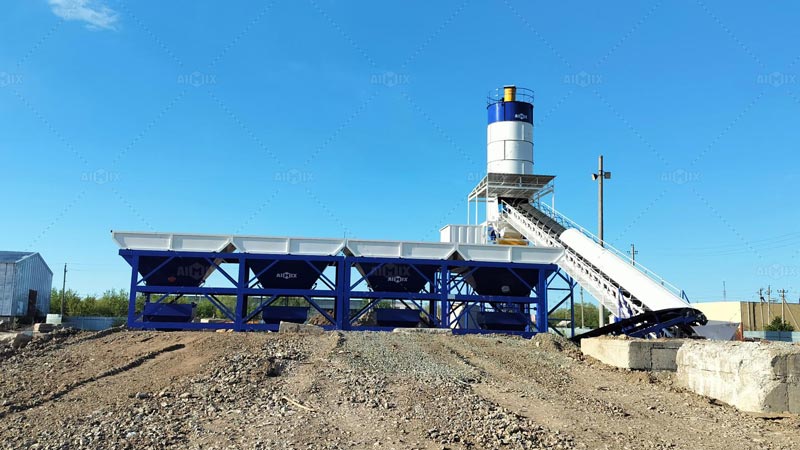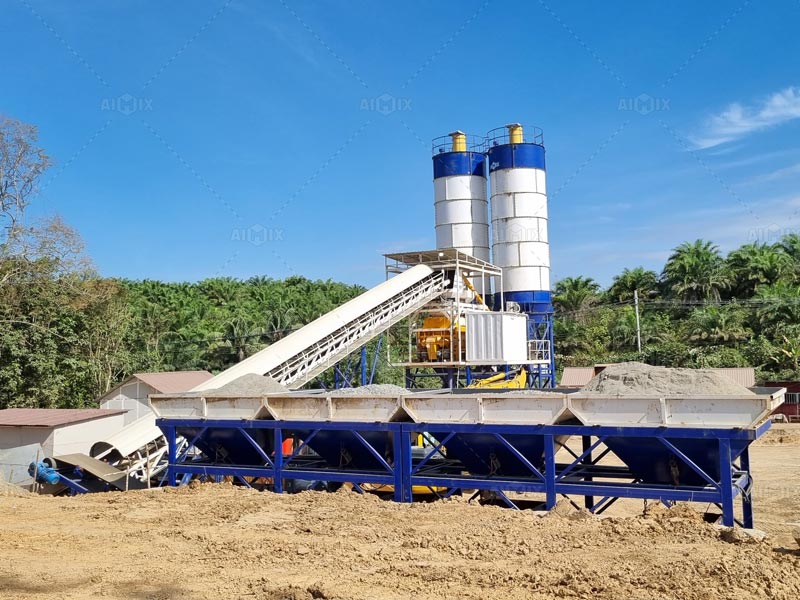In the fast-paced world of construction, speed, scale, and consistency are everything. Concrete plants are essential in meeting these demands, especially for large-scale projects that require massive volumes of concrete delivered on time. From a ready mix concrete plant to a mobile concrete plant, different types offer unique advantages tailored to specific environments and logistical challenges. This article explores the various large-scale projects where concrete plants thrive, while also considering efficiency, logistics, and concrete plant price as essential decision-making factors.
Why Large-Scale Projects Rely on Concrete Plants
Concrete plants ensure a consistent and continuous supply of concrete for infrastructure and industrial-scale builds. On-site mixing is often impractical for projects involving tens of thousands of cubic meters of concrete. A centralized concrete plant(planta de concreto)—either stationary or mobile—offers automated precision, better mix quality, and time savings. These features are critical in projects where structural safety and tight timelines are non-negotiable.
Ready Mix Concrete Plant vs. Mobile Concrete Plant
A ready mix concrete plant is typically located off-site and delivers pre-mixed concrete to various job locations. It is best suited for urban or suburban construction, where space constraints and accessibility favor off-site preparation. Conversely, a mobile concrete plant can be transported and assembled near the project site, making it ideal for remote or large, spread-out developments. Mobile units are compact, easy to set up, and reduce logistical bottlenecks, especially in projects where concrete demand fluctuates.

Top Large-Scale Projects That Need Concrete Plants
1. Highway and Bridge Construction
Highways and bridges require durable, long-lasting materials that can be produced in massive volumes. Concrete plants help ensure consistent batch quality for pavement layers, bridge decks, and support structures. In long-distance projects, a mobile concrete plant can be moved along the construction path to reduce haul time and transportation costs, enhancing workflow efficiency.
2. Urban High-Rise Buildings
In urban centers, vertical construction dominates. Skyscrapers and commercial towers demand large quantities of high-strength concrete delivered continuously. A ready mix concrete plant(planta de hormigon elaborado) plays a vital role here, allowing engineers to schedule deliveries precisely and maintain optimal curing times, especially for load-bearing elements like columns, beams, and floors.
3. Dams and Reservoirs
Concrete plays a vital role in dam construction due to its strength and durability. Given the sheer volume required—often millions of cubic meters—a high-capacity concrete plant is indispensable. These projects often take years to complete, so investing in a stationary concrete plant on-site ensures that quality and supply remain consistent throughout the construction cycle.

4. Energy Infrastructure Projects
Wind farms, solar panel installations, and nuclear power plants all require sturdy concrete foundations. These projects are frequently located in remote areas, where transporting concrete from urban centers is expensive and inefficient. A mobile concrete plant becomes the ideal solution, delivering cost-effective and timely concrete on-site, without logistical headaches.
5. Airport Runways and Terminals
Airport infrastructure demands high-strength concrete for runways, taxiways, and terminals. The mix must withstand heavy loads and frequent temperature changes. A concrete plant—especially a ready mix one—ensures consistent mix design and quality control. For extended runway construction, mobile plants(planta de hormigon movil) can be repositioned as the project progresses.
6. Industrial Zones and Logistics Parks
Large industrial parks and warehouse developments need thousands of square meters of concrete for foundations, floors, and access roads. These projects benefit from both ready mix concrete plants and mobile concrete plants, depending on their location and scale. Concrete batching systems can be calibrated for specific industrial needs like heavy-load support or chemical resistance.
Understanding the Impact of Concrete Plant Price
The decision to invest in a concrete plant—whether mobile or stationary—requires careful analysis of concrete plant price. While the upfront cost may seem high, the long-term benefits in efficiency, quality, and reduced downtime offer excellent returns.
Factors Affecting Concrete Plant Price
- Capacity: Larger plants with higher output rates cost more but are suitable for mega-projects.
- Automation: Fully automated systems require less manual labor and offer better control, which increases the price.
- Mobility: Mobile concrete plants cost less to install but require transport and setup with every move.
- Technology: Advanced mixing systems like twin-shaft or planetary mixers are more expensive but deliver better quality.
- After-Sales Service: Reliable support, spare parts availability, and maintenance contracts also factor into the total cost.
Cost vs. Productivity
It’s important to evaluate not just the initial concrete plant price(planta de hormigón precio) but also its lifecycle value. A high-quality ready mix concrete plant with advanced automation can reduce waste, improve safety, and increase daily output, leading to quicker project completion and higher profits. Mobile concrete plants offer flexibility, saving money in remote or temporary jobs, despite their smaller size.
Environmental and Regulatory Considerations
Modern concrete plants are designed with environmental sustainability in mind. Dust collection systems, water recycling units, and noise reduction technologies are now common. Large-scale projects, particularly government-funded ones, often require strict environmental compliance, making eco-friendly plant features an important purchasing consideration.
Conclusion
Concrete plants are the backbone of large-scale construction projects across various industries—from infrastructure to energy to commercial real estate. Choosing between a ready mix concrete plant and a mobile concrete plant depends on project location, scale, timeline, and budget. Understanding the features, advantages, and concrete plant price helps project managers make informed decisions, ensuring long-term project success with minimal risk.
In the end, whether you’re building the next megacity or a remote hydroelectric dam, a reliable concrete plant will be at the heart of your project’s foundation—both literally and figuratively.